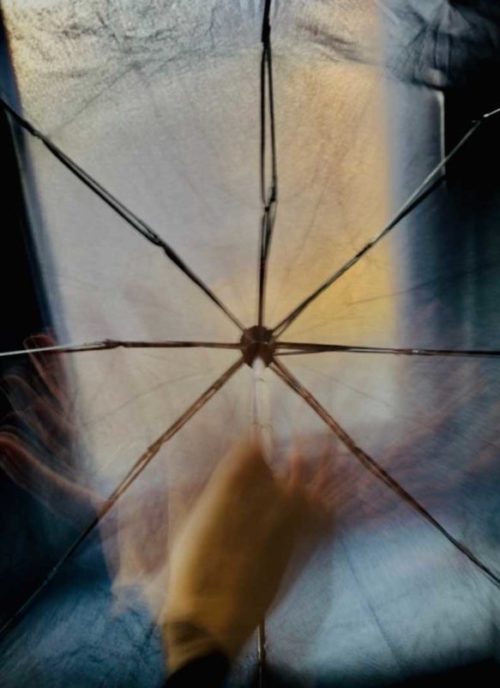
Small Details
by Limor Kaufman
When Z. was away at a psychoanalytic conference in Rome, her patient D. came into her home office for his Tuesday-afternoon therapy appointment. He probably sat in her waiting room for a couple of minutes, then walked into her office and looked at her desk, her drawers, her black record book where she writes down payments. She had a lot of cash hidden in the left cover.
He might or might not have taken some of the cash. He might or might not have found the copy of the talk she was going to be giving about him in Rome, titled “The Psychotherapy Session as a Thriller.” Did she or didn’t she lock her file cabinet before she left for the airport in her typical rush? She knew she did not ask D.’s permission to tell his story—their story—breaking confidentiality, exposing the shady details of his secret gambling, womanizing, and drug dealing. He might or might not have stolen into her bedroom, snuck into her bed, hiding under the covers, pretending he was her lover or her son, checking her bedside table, looking at the labels of her medicines, trying on her night cream and perfume, searching for signs of men, other men, husbands, lovers. Was it he who stole her Mexican turquoise bracelet or her silken underwear?
Then he walked into the kitchen (didn’t he?), nibbling on her leftover pasta puttanesca, drinking her Montepulciano, finishing off her half-eaten pear. Was it then that he, her boy, walked in to find a wild-eyed stranger in their home? He might or might not have been pretty startled, scared, freaked out. But D., walking into one of his favorite roles as the maître d’—charming, seductive, taking charge—probably offered him a glass of wine, asking him about her. The boy asked D. to leave immediately. D. told the boy he would, yet invited him to have a drink, apologizing that the pasta was all gone. D. asked the boy where his mother was and told him he was her patient.
The boy might or might not have believed him. He was very anxious, trying to figure out his next step, assessing the possible risks. D. told the boy to calm down: he knew this was weird and scary, but he was just a normal guy and one of his mother’s long-standing patients. D. told the boy he came for a session and did not know that his analyst was gone. She must have forgotten to tell him—not always on top of the small details, though a deeply caring psychoanalyst who was helping him get a grip on his life.
The boy might have nodded, angry that his mother hadn’t left enough cash in the kitchen drawer, not knowing about the black book and all the other things D. knew about: the patient files, the medicines in her medicine cabinet, and so much more. D. proudly told the boy he might know things about his mother that the boy didn’t. He was a gambler and a card player, and he knew how to read his opponents and his shrink. D. told the boy that he knew how it felt to have a mother who was a therapist. His father was also one. He still remembers looking at all his father’s patients strolling in through the back door, eavesdropping through the hole he made in his bedroom wall, listening to their stories. It was so much fun! Those crazy patients! D. might or might not have asked the boy if he wanted to hear about what happened to him this week, since he was her son and he bet he was a great listener. He needed to talk because he was in trouble. The kind of trouble he could not talk to his girlfriend about. He seemed pretty agitated and maybe a bit drunk.
D. and the boy might or might not have pretended to be a patient and a therapist sharing stories, changing roles, two therapists’ sons—two boys, a bad boy and a young boy not knowing his badness from his goodness yet—drinking wine together, staining her golden velvet couch, sharing anecdotes about her, taking revenge on her for her Roman holiday. She should have made sure she canceled D.’s session, double-locked her files, her bedroom door, her medicine cabinet, but definitely she should have removed the evidence of her transgressions, the theft of D.’s story.
-
Limor Kaufman is a psychologist and psychoanalyst in private practice in New York City. She is on the faculty of Adelphi University, the School of Visual Arts in New York City, and the Israeli Leadership Institute in Israel. She is the recipient of the 2009 and 2015 New York University Psychoanalytic Society Grant awards for her writing and teaching about psychoanalysis, creativity, and art. Limor is a graduate of the New York University Postdoctoral Program in Psychotherapy and Psychoanalysis, the Organizational Consulting program at IPTAR, and the Couples Therapy program at the William Alanson White Institute.
-
Email: limorkb@gmail.com
ROOM is entirely dependent upon reader support. Please consider helping ROOM today with a tax-deductible donation. Any amount is deeply appreciated. |




